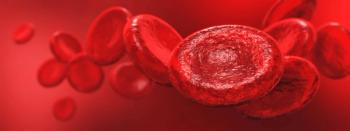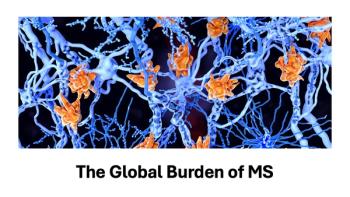
The Impact of Dietary Intervention on Lupus
A Yale University study has revealing findings about how diet impacts patients with lupus.
A change in diet may be beneficial for people with lupus, according to a new study conducted by researchers at Yale University.
In A Diet-Sensitive Commensal Lactobacillus Strain Mediates TLR7-Dependent Systemic Autoimmunity, which used mouse models of lupus, the researchers found that a simple dietary intervention can help prevent the development of this autoimmune disease.
“We were interested in how gut microbes influence autoimmune diseases and were looking for ways to manipulate the microbes and thereby disease,” says Yale immunobiologist Martin Kriegel, who led the study. “We set out to study resistant starch because it is a diet that is ‘resistant’ to digestion in the small intestine and instead is fermented by gut microbes in the large intestine, thus has a direct effect on the gut microbes. We wanted to modulate the microbiome by natural means (a diet) as opposed to the more artificial depletion of almost all gut microbes with broad spectrum antibiotics.”
Prior work in the metabolism field already supported that fiber-rich diets can suppress inflammation and metabolic diseases, which the researchers chose to apply to lupus, a chronic autoimmune disease affecting many organs but rarely the gut.
The team used so-called TLR7 transgenic mice that overexpress an innate RNA sensing receptor called TLR7 because it serves as a good model to study the innate immune arm of the pathogenesis of lupus.
“These mice develop all hallmarks of human SLE via increased signaling of TLR7 which activates innate cells called plasmacytoid dendritic cells (pDCs) to secrete interferon-alpha (IFNa), the signature cytokine in human lupus,” Kriegel says. “Many SLE patients have genetic polymorphisms or other abnormalities in the TLR7/8 signaling pathway and related pDC/IFNa axis. We thus aimed at identifying gut microbiome triggers that affect these crucial pathways.”
One microbe that stood out in the surveying studies was Lactobacillus reuteri (L. reuteri) which was consistently enriched in lupus mice and grew out of internal organs of these animals. The researchers also found similar bacteria in the genus of Lactobacillus among other unrelated bugs in the liver of human patients with autoimmune disease in a prior study.
“When adding only L. reuteri to the gut of these mice, we could exacerbate lupus-like disease demonstrating a causal link between this gut bacterium and disease,” Kriegel says. “We used the starch diet and showed in these germ-free mice that the diet acts on the gut barrier and this bug directly.”
Related article:
Overall, the team dissected diet-host-microbiota interactions in lupus that he believes has never been uncovered previously. The findings also confirmed the gut microbial changes present in the TLR7-overexpressing models in a human SLE cohort the researchers have followed at Yale.
“We found that a single gut microbe can exacerbate the TLR7-mediated pDC/IFNa-driven inflammation that leads to lupus phenotypes and uncovered mechanisms of these host-microbe interactions that are very relevant for human lupus,” Kriegel says. “We could prevent the innate inflammation and disease manifestations by a particular starch diet that increases good bugs and in turn suppresses L. reuteri via SCFA. The diet also seals the gut barrier, thereby preventing gut bacteria from translocating to internal organs as L. reuteri does in this model.”
The Yale team is very interested in how exactly L. reuteri can potentiate the so called innate pDC/IFNa-driven pathway and hope to identify metabolites (small molecules) that are secreted by L. reuteri that may activate pDCs to secrete more IFN after TLR7 stimuli.
“In the paper, we already show that culture supernatant from L. reuteri stimulates TLR7-activated pDCs in culture dishes, thus pointing to small molecules being involved in activating this innate pathway,” Kriegel says. “We’re also hoping to extend the research to patients with SLE. Although we found similar dysbiosis in a subset of SLE patients, we don`t know yet if the starch diet would be preventive or therapeutic in these patients.”
This study and the team’s prior work points to personalized medicine because the combination of host predisposition plus the wrong bugs (i.e., certain Lactobacillus species) aggravate disease more than each factor alone. Future goals would therefore be to identify the subsets of SLE patients who may benefit from a dietary or other microbiome-targeted intervention that reduces the pathobionts the team identified.
“Given that L. reuteri exacerbates the innate immune axis called pDC/IFNa, it may also have relevance for genetic syndromes with an overactivation of this pathway (the so called interferonopathies),” Kriegel says. “They are characterized by clinical heterogeneity. The gut microbes might thus also contribute to manifestations or severity of these syndromes.”
Keith Loria is an award-winning journalist who has been writing for major newspapers and magazines for close to 20 years.
Newsletter
Get the latest industry news, event updates, and more from Managed healthcare Executive.























